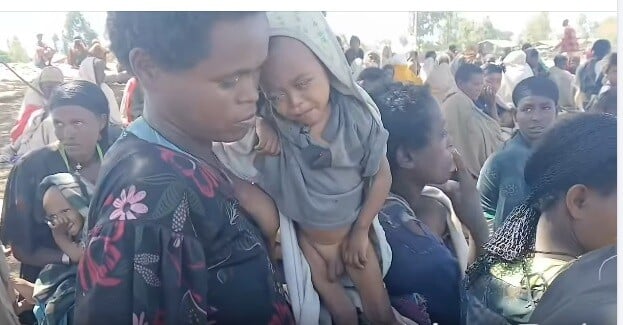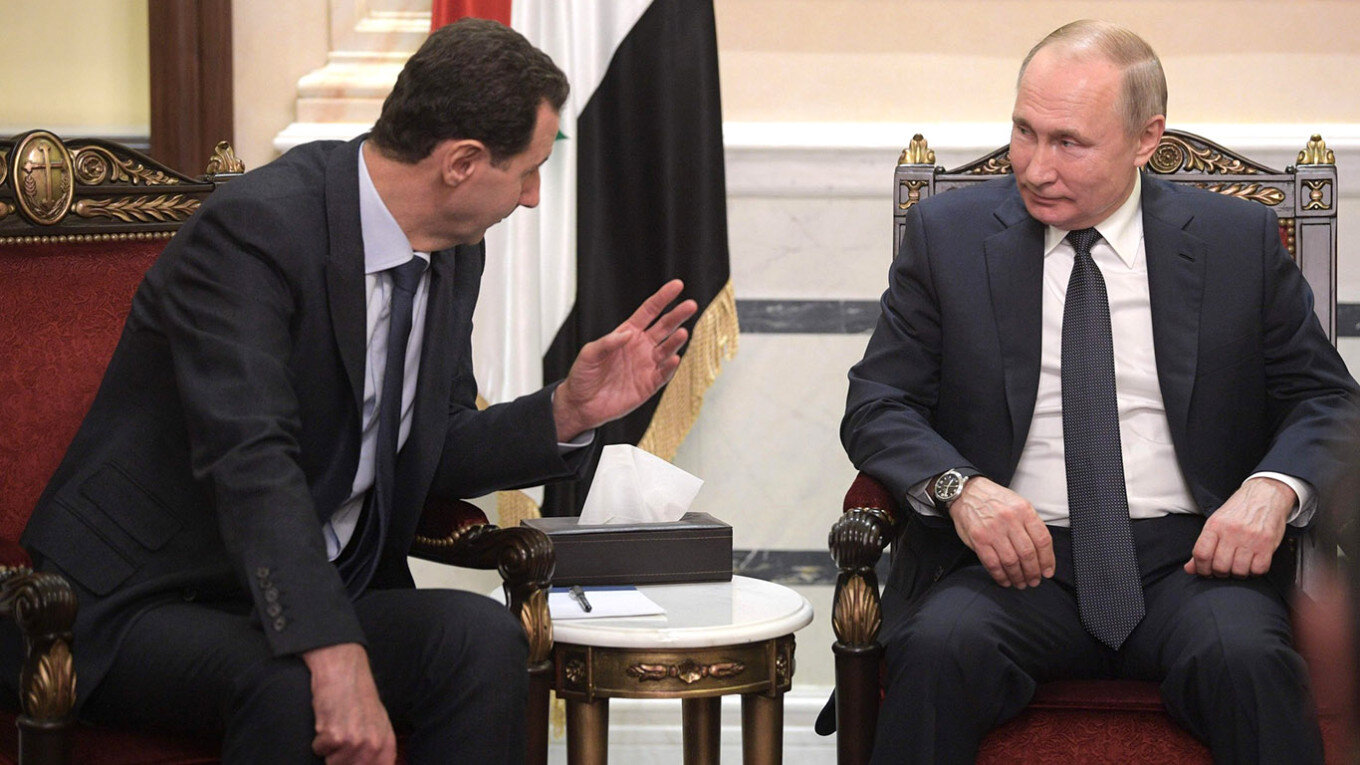
By Jeff Pearce
The chants for Fano at the Great Ethiopian Run, I suspect, sent a nice shock wave through the smug ranks of the Abiy government—it certainly did with the creative typists and cheerleaders for Abiy online (and gosh, that was fun). But of course, Fano hasn’t arrived yet. I’ve spent more than one evening talking to friends and allies or sharing a meal, all of us giddy with the expectation that okay, this is the breakthrough week, this is when the vehicles roll into the capital to the cheers of a grateful liberated crowd.
And then there’s a setback. And Fano units regroup. And then government forces do something for kicks or out of spite and shell the Gishen Debre-Kerbe Mariam Church, “where there is located no single combatant of Fano.” Because hey, from their perspective, it looks like you’re doing something, plus you get to destroy another priceless heritage site of Ethiopian history as well as a precious site of Ethiopian Orthodox Christianity. Two birds—many stones scattered.
And so, we wait. We need patience just as we all need to trust in the fortitude of Fano volunteers. But I have confidence that Fano will eventually prevail because what some may not understand yet or refuse to see is very simple:
This is not a war of ethnicities, it’s a war of ideas.
As I write this, there’s a clip of Abiy Ahmed online (I presume the translation is correct) hoping to sell his great scheme to plunge Ethiopia into decades of ridiculous debt. “There are some that say we are adding more debt to the country’s already high debt. But borrowing from the IMF and the World Bank is like borrowing from one’s mother.”
Well, I don’t know about your mother, but I’ve never known any who charge interest, and I think it’s both comical and pathetic that Abiy thinks this will fly when there have been so many African “children” crushed under Western debt who could have told him about big bad “helicopter Mom” and how fast the rules can change on her watch and how that interest pile up.
But Abiy’s idea is to clearly wage ethnic wars while distracting folks with shiny glass and concrete boxes in urban settings and the occasional planting of a few trees. As much as his party is named “Prosperity” and his style is evangelical, at the heart of it is a Soviet-style approach to economics and development. Look! Projects! Stuff! If we surround our new outrageously expensive Disneyland Palace with stuff, maybe no one will notice they’ll be stuck with the tab for Abiyland decades.
Only Abiy is going to lose. Big time. Because you can sucker folks for a while with shiny stuff, but the bill will come due, and if it only benefits an urbanized middle class, especially a middle and upper class of a specific ethnic group, you have a real problem. No one will buy “Green Legacy” BS while thugs deny Amhara farmers seeds and fertilizer—and then try to kill the farmers on their next pass. No one will buy your BS about food security while you post tourism commercial footage of wheat fields while Tigrayans are starving (which they really are this time, unlike the debunked myth of Tigray famine during the TPLF war).
And it’s not a good sign when security officers come around to beat up staff of the African Development Bank, which is apparently minding projects worth $308 million. It’ll be a hell of a show when these goons do that to representatives of the IMF or World Bank in Addis, and you know that’s coming.
Vacuous spectacle. “Development” that depends on loaned funds. Intimidation. There’s not much deep thought going on here.
So, what is on the other side? What ideas will Fano bring when it finally wins and takes over?
As much as I support Fano, it has made the appropriate rumbles about justice and ethnic equality while not really giving out any clear picture or detailed plans on how its eventual coalition will govern. I understand this caution. Why get your vision shouted down by the PP echo chamber online or worse, give away ideas that could be swiped and executed poorly by a desperate, crumbling regime? (I live in Canada where the socialist…ish New Democratic Party has traditionally offered interesting ideas and policies, only to see them—yoink—get appropriated by Liberal governments, who then take a bow).
I don’t think we have to worry about Abiy’s regime stealing ideas, as its smartest people are right now keeping their heads down, hoping not to be noticed, scampering under a doggie blanket like your pet basset hound during a loud thunderstorm.
And yeah, I know, the Amhara region still has an Internet blackout, yet Fano has been able to get some communications out: messages, photos, even some videos. A war keeps them busy, and yet… And yet and yet and yet—
Unless Fano starts a new conversation soon about ideas, if not offering a few broad strokes on a platform, it risks its inevitable military victory being cynically portrayed as an ethno-nationalist purge.
It has done so much so far to build genuine hope, but it’s an unfortune political truism of any revolution that you have to keep building that hope and eventually deliver on it.
So, I humbly recommend some priorities.
There are the “givens” that we all expect, such as an immediate conference to overhaul the constitution.
What shape would this take? The thinking among those pondering this one recommends a conference or a series of conferences in which papers can be presented and constitutional scholars from around the world be invited to weigh in. Canada, for instance, had to literally fetch its constitution—which, like the British one, was a set of documents rather than a single one as the Americans have—out of a desk drawer off in London. It took a lot of work to develop a revised version, and that one still has its quirks. It wouldn’t hurt at all to see how other nations have done it, particularly in
A new Ethiopian constitution has to enshrine the rights of the individual and ensure that the ethno-nationalist insanity get a stake through its heart and have earth shoveled over it once and for all. And one of the most fundamental rights that needs to go into this document is that any and all Ethiopians have the right to move and live freely where they choose in the country.
If the constitution is top of the list, education is a close second. To say the situation is a catastrophe would be to engage in British sitcom understatement. The World Bank made a policy brief on education that found out that a whopping 90 percent of ten-year-old children in Ethiopia couldn’t read a sentence—only one percent of Grade 4 and Grade 5 students had the reading skills expected for their level.
The appalling results of exams announced recently by Education Minister Berhanu Nega tell you all you need to know that the Abiy government simply doesn’t care if your kid can get into a university. But then why should it even think along those lines? Many of those in positions of influence and power allegedly got their doctorates handed to them in a wink-wink-nudge ritual rather than earning them, and the gossip over this includes the prime minister.
What I do know personally on this subject is that in 2021 I saw schools and universities vandalized and looted by the TPLF, and I wonder just how much money if any at all went into these facilities getting replaced and equipped again? The Abrehot Library is supposed to be gorgeous and wonderful and it should be at a price tag of more than a billion birr. I hope to see it one day.
But I also think, Well, that’s great for kids and adults in Addis. What if you’re a high school student in Semera, where’s their big, fancy library? Where’s the one for Dire Dawa and Debre Markos?
At the same time, the right directions have to be taken in education. In North America, for instance, universities right now are in crisis as degrees—especially liberal arts degrees—are scoffed at when anxious graduates try to get jobs. After the Second World War, the imperial government pushed hard to modernize education and turn out a generation of graduates trained in industrial professions and applied sciences. Great for the country—up to a point. But a university, even a community college, can be a place where young people can and should learn critical thinking.
And that should include mandatory study in junior level and senior high school of the true history of the nation. Much of the blame for how Ethiopia fell into hell for about half a century had to do with a whole generation that swallowed hook, line and sinker Marxist propaganda taught to them by liberal American and British politicians. After my YouTube documentary about certain emperors went online, some blustering, pompous idiot tried to take me to school and correct me over Ras Mengesha. He foolishly mixed up Mengesha with the era and life of Mengesha’s son, Ras Seyoum.
It was pathetic, and I can only think, You should know this better than me, not the other way around. For your own sake. But then I’ve had the advantages to get my hands on books that I sincerely wonder whether they’re available in Ethiopia itself.
To truly understand the historical background of a nation and its institutions make up what the Americans used to call “Civics” and what we in Canada used to label “Social Studies” (I have no idea what they put under Social Studies now).
It’s essential because the often neglected, ignored Ethiopian of say, Somali descent has every right to ask what is my place in your grand narrative? How can I be invested in your institutions?
And if you don’t have a good answer for them, that is going to be one embittered, pissed-off individual. That is how you manufacture radicals. That is at the very least, how you lose the best and the brightest of a generation—it’s happened before.
So, yes, it’s a balancing act, but an incoming Fano regime must develop a new curriculum that not only speaks to the practical urgencies of a nation trying to be competitive in the world but also nourish the soul of a grade school girl of nine and a curious, distracted boy of fourteen and a young woman in her twenties who may be the first in her family from Gambella to attend university—and wants to go to medical school.
Then there’s the matter of farm security. No, I didn’t mistype food security. I really meant farm security. It’s well recorded that those seeking to ethnically cleanse the Amhara used a particularly nasty cruelty by denying seeds and fertilizer from desperate farmers, waiting for them to fail, hoping they would fail and starve. This is the rationale of the insane bigot.
Only an Oromuma extremist could be such a fool as to cut off a source of harvest and food that replenishes more than just the local region, in the same way that Jemal Countess and I shook our heads over the depraved TPLF idiots who stole an entire Covid lab out of a Dessie university. As if a pandemic gives a damn about ethnicity.
Just as no one was stupid enough in 1964 to think the Civil Rights Act would make southern bigots treat African Americans better overnight, so we can expect to see Oromuma extremists still try to interfere with Amhara farmers for some time. And issues and tensions in other regions and communities, especially Welkait.
But we can think further. A disturbing scenario has always stayed with me from Asfa-Wossen Asserate’s excellent African Exodus, in which he details how an African nation can shove its own interests to the side in pursuit of a hierarchy’s greed or the blind chase of Western capital:
“The rose plantations of Ethiopia have become a cause célèbre in this regard. In Gambela, the country’s most fertile region, hundreds of thousands of hectares of prime agricultural land
are being used by foreign concerns to grow flowers. The original inhabitants of the region, the Anuak, who number about 500,000, were driven from their smallholdings to make way for the plantations.”
It was much the same across Africa. “…Small farmers are mostly helpless in the face of this onslaught by large agribusiness concerns, which work hand in hand with the countries’ governments and local authorities.” (African Exodus, pages 94-95)
These lines were published in 2018. How much has changed? And right now, in the aftermath of a pointless war started by the TPLF, Tigrayans are starving. And we know Gambela is still an abattoir.
If we accept that ethnic hatreds and feuds are exacerbated by economic drivers, then surely we can also agree that Ethiopia has the chance with Fano to set a new agricultural agenda—one that respects the land and the people who directly rely on it. Not the phony agenda floated by Abiy that watches people starve, lets the World Food Programme trucks handle it, and then brags about wheat exports.
No. I mean an Ethiopia in which it can truly feed all its citizens again as it once did.
And that will take a tremendous strength of will and vision to say, This is madness, you can’t feed a nation’s citizens with roses or with the trickle-down profits from agribusiness export crops. You’d have to build a new relationship with agriculture, realizing that you can’t exhaust the land and water resources to capture the American dollar.
The real vision is in recognizing that one day, Africa can and should be in the driver’s seat as having all the groceries the rest of the world will so desperately want. Ethiopia could start on this more enlightened path and set a successful example to the rest of Africa. Fano could steer it that way.
Everything I’ve put out here are just ideas and suggestions, ones I hope will spark useful discussion. And this is how policy formation starts.
A policy has to speak to the future, and the word “policy” itself conjures up dreary visions of a bureaucrat with his desk stamp and his sour demeanor. Well, that was the old way, with TPLF rules to rob Afar of the salt profits and tourist business and the Oromuma way to officially declare—shamelessly, viciously—that IDPs have to go home to the districts where they expect they can be massacred. Policy, you understand.
The promise in Fano, however, is not in how it merely addresses innocent Ethiopians dying—it’s in how Ethiopians can finally breathe free and live.
Jeff Pearce


















A deep and concerned analysis, to my opinion.
DIaspora politicians should really take an immediate action , play he role they have to play.
Diaspora politicians can not blame any more or search for an execuse as you did in the past.
History will judge.
What is coming is not a bunch of Kalashnikov bearing fighters. That would not be new. Kalashnikov bearing rag tag soldiers have stormed Addis Ababa three decades ago at the end of the Cold War, marking the start of a reign of terror and the systematic dismantling of Ethiopia. What is coming now is the Fanno of age-old Ethiopia, the liberator from occupation and colonialism. What is coming is not guns, but justice, freedom, liberation, equality and above all a renaissance of the Ethiopian spirit.